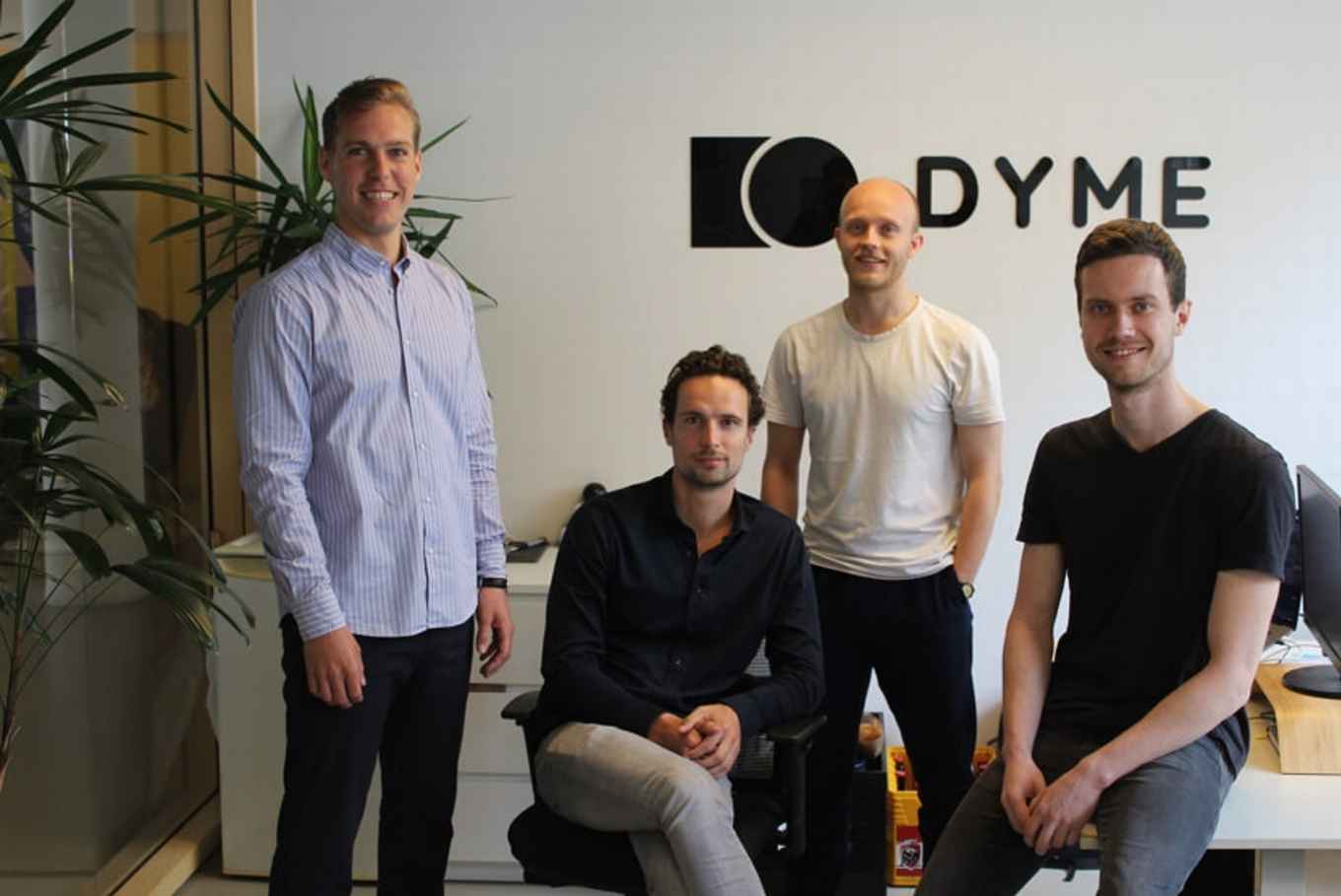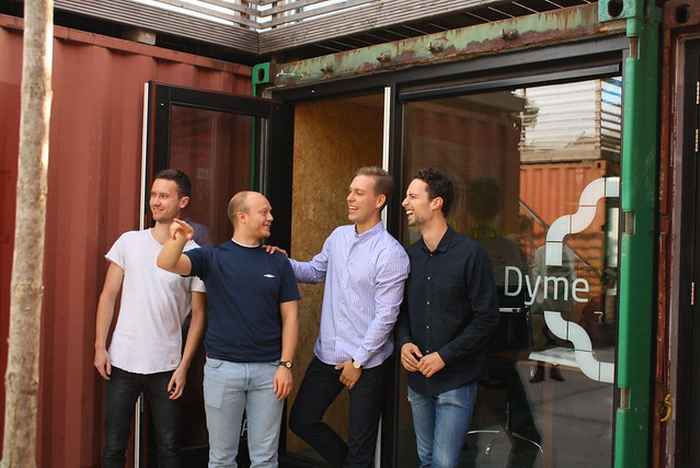‘Our studies were the perfect moment for us to set up a business’
Dyme: David Schogt, Joran Iedema, David Knap and Wouter Florijn
1 August 2019

(Nearly) all of you are UvA alumni. How did you meet?
‘With the exception of Wouter, we are indeed all UvA alumni. Joran and David Knap both studied Economics and Business, after which Joran pursued the Master’s of Data Science at the UvA, and David did Accounting & Finance at another university. At the same time, David Schogt studied History (BSc) and New Media (MSc) at the UvA. Wouter has a background in IT and studied in Utrecht.
When Joran and David K. hatched the idea for a company, they soon realised that they were unable to build it on their own. Joran called Wouter, the ‘computer science prodigy’ of his high school. He then called David Schogt, who was always working on his own projects and had experience in graphic design. That’s how we came together, with Joran at the centre. The rest of them didn’t know each other yet. The first meeting took place in one of the study rooms of the UB.’
How do you look back on your studies? Were you all so entrepreneurial back then?
‘Dyme wasn’t our first joint business. That was Cycleswap, an online bike sharing platform that was invented in 2013 during a long brainstorm session in the UB. We were all studying at the time, but we also had an inner urge to set up something ourselves. We built and maintained our platform in between lecturers, exams and study trips. Having a group of four made this manageable, as there was always someone available for customer support, for example. Due to emergencies, we sometimes had to miss a lecture, but our student days were probably not very different from those of most other students.
The way we see it, our studies were the perfect time for us to start a business. We had a few serious responsibilities and we were not financially dependent on the company. There was more room to ‘fail’. At least, that is how it felt. This was not unimportant: our particular brand of brashness made us take certain risks that others might not have taken. Of course, this went wrong rather spectacularly on occasion, but all in all, it taught us a lot.’

You participated in the ACE incubator and built up Dyme via the Startup Village. How did you come up with the idea of Dyme?
‘Wouter came up with it a while ago, when he was working on his personal administration. He lost track of his monthly costs, and after some thorough investigating, he found that for months he was paying for a subscription that he didn’t even know he had. After some research it turned out that 52% of all Dutch people come across the same thing (source: Nibud). Providers also deliberately make it difficult to cancel a subscription or to switch to another provider. Dyme gives people more insight into their fixed costs and helps them to deal with their personal finances in a smart way. We want to give them more financial freedom with our technologies
The idea arose before we joined the ACE Incubator, but the program really helped us develop it. We also gained some valuable contacts there.’

How is your company doing now? What are your ambitions for the future?
‘It’s going very well. We just received an investment and will improve our product enormously in the comping period. The userbase increases by the day, which is great, because our first goal is to serve at least 200,000 users in the Netherlands by 2020. In two years, Dyme won’t just be active in the Netherlands, but throughout Europe!’
By now you’ve found a number of investors for Dyme. Was the alumni network of the UvA of value in that regard?
‘Absolutely. One of our first ‘angel’ investors has a history with the UvA. In addition, we raised funding early on from the Amsterdam Student Investment Fund, a student investment fund co-founded by the UvA. So, we already benefited a lot from UvA alumni, and we do not exclude the possibility that we’ll benefit from it again in the near future.
Do you have any tips for students and alumni who have the ambition to start their own business?
‘It is difficult to give some tips without resorting to clichés. But, most clichés have some truth to them. First of all, we would say: if you have an idea, develop it ‘on paper’ first. Examine your ideas critically and consider all kinds of possible scenarios, down to the last detail. And keep in mind realistic earning models. Then let your idea rest for at least a week. Are you still enthusiastic about it? If so, then it’s time for the next tip: begin.
Experience taught us that there is not much point in talking to friends or family about your idea. Almost everyone in your immediate environment responds positively to your idea, that is just how people are wired. It is better to come up with a clever way to test your idea on a broad and anonymous audience, for instance with a paid Facebook test campaign, or a very simple web page on which you present your proposition.
Finally, we would say: if you are not the type to set up something on your own, look for someone with similar ambitions, but with a complementary skill set. The more you can do yourself, the less dependent you’ll be on (expensive) external parties.'